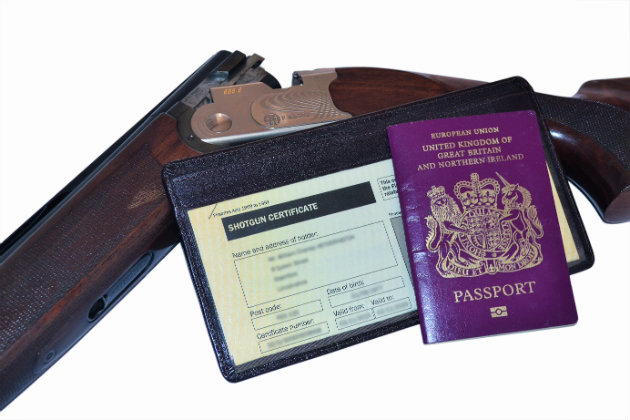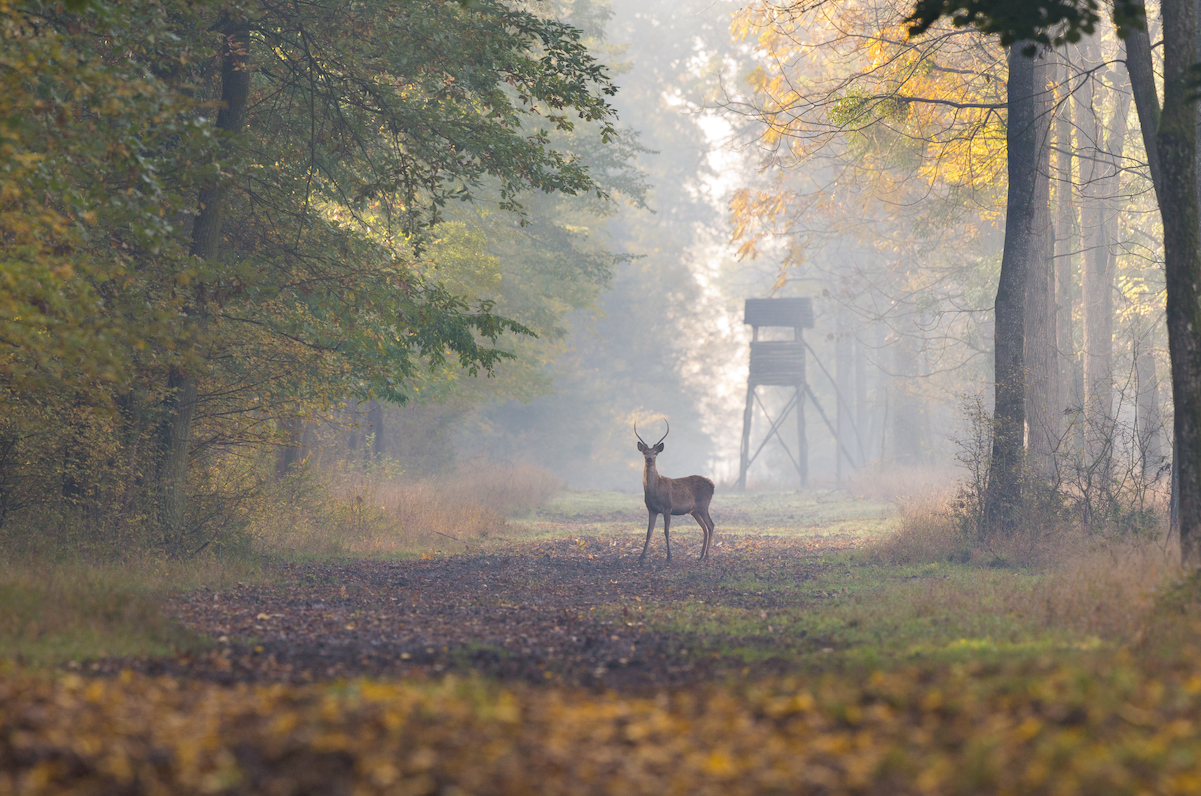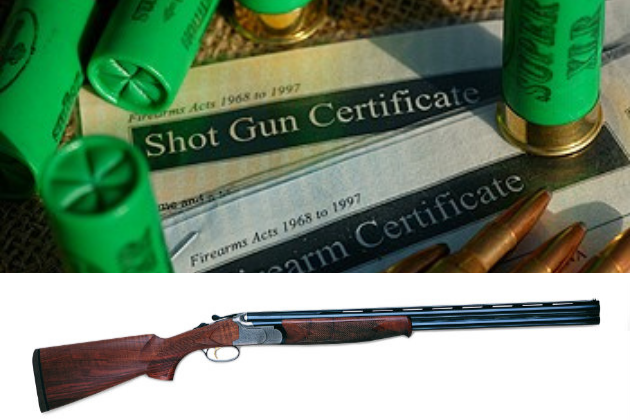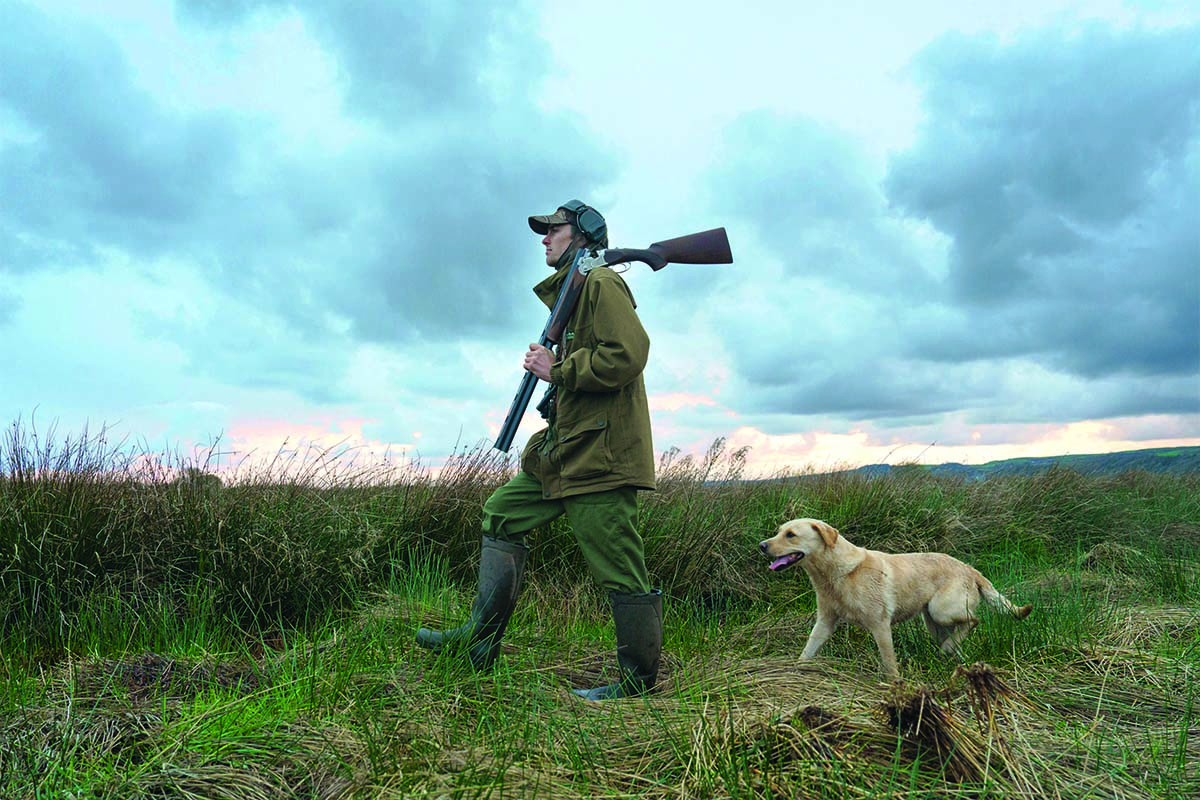Firearms certificate changes ahead?
Dave Orford is the new national police chief’s council lead for Firearms and Explosive Licensing. Helena Venables catches up with him to find out more about potential changes to the licensing system.

Firstly, how did you get the job?
“I stepped up as assistant chief constable of Durham Constabulary temporarily in October 2012 and became substantive in July 2014. In a recent change as of mid July, I have been promoted to temporary deputy chief constable. As I was going through the ACC period, a number of national portfolios became available. So I let my chief constable, Mike Barton, know I was interested in the firearms licensing area as I felt my background would be useful. Andy Marsh, then chief constable of Hampshire and the previous firearms lead, was moving force to Avon and Somerset, so the role was available and I decided to go for it. I also hold another portfolio and am responsible for geographic information systems for the police service. So when a member of the shooting community is out looking at an Ordnance Survey map, it’s probably me who has been sitting with the OS giving a police perspective on their mapping systems. All national police chiefs’ council portfolio roles are voluntary and we don’t get paid any extra.”
You mention your background making you suitable for the role; tell us more about that.
“I was a commissioned officer in the Royal Engineers. I left after a short service commission to join my own police force, Durham, where I was born and bred. So I have been at both ends of firearms, on the receiving end during operations and at the other end because I used to be a police firearms officer. I held the role of firearms commander at every rank up to assistant chief constable and was also head of firearms training for Durham and Cleveland Police, running my own firearms training centre, which was rated one of the best in the country. So I can talk to you about control of lead at work regulations, tell you how many rounds of ammo a G36 will take, and can generally bore people to death. But I think this gives me a unique perspective as I understand firearms, their uses and how they work. I also understand the harm they can do when used illegally and have been involved in many operations where we’ve had to keep the public safe. And I understand the positive uses firearms can be put to, and that when used responsibly they have a place in our society and are legal. It’s also important to remember that the portfolio isn’t just for firearms but also includes explosives. In my army job I was a demolition safety officer, so I’m probably the only portfolio holder for this business area who not only can shoot but can also blow things up!”

Deputy chief constable Dave Orford is looking at a fully integrated system, which could mean the length of time a firearm or shotgun certificate lasts “almost becomes irrelevant”
Do you have to follow on directly in the footsteps of CC Andy Marsh or do you have an element of freedom in the role?
“I have freedom as portfolio lead to work within a framework: this means in my portfolio area I will give my policing opinion on how effectively we can implement the law around firearms and their regulation. But I have to emphasise it is for policymakers to determine what that law is. I may be asked my opinion from a policing perspective but we walk a fine line between giving a policing opinion and a policy opinion based on a political, or even personal, imperative.”
What issues will you be dealing with at first? And later?
“Firstly I will be working to increase my knowledge and understanding of the different needs and expectations of the shooting community, which is wide and diverse. Rather than a shooting community per se we need to understand the different forms shooting and shooters take, from people who use firearms as part of their job through to hobbies, sport, hunting, historical interest and so on. Internally I will be working to give a better interface to firearms and shotgun licence holders and help streamline the processing of applications. Then in the longer term I’ll be picking up how we can improve the renewal process and review the timescales on how long firearm and shotgun certificates are valid for. Our processes used to be based on someone retrieving a paper file from storage but we are moving into a modern age where police forces can review and manage data almost constantly. This means we have a certificate holder’s suitability on constant review and means the length of time a firearm or shotgun certificate lasts almost becomes irrelevant. I would like to see that develop further.”
Durham Constabulary has had much criticism of its own firearms licensing department, leading to critics saying a Durham officer should not have been given the role of firearms licensing lead. What do you say in reply?
“This is a very valid question and I have seen some blogs on the subject. I can understand that if you’re not from the north-east and you don’t know Durham Constabulary and its overall work, you might take this view. To put things into perspective, Durham has recently been rated by Her Majesty’s Inspectorate of Constabularies (HMIC) as the top-performing police force in England and Wales. Two years ago HMIC adopted a similar grading system to Ofsted, so police forces are now graded in efficiency, effectiveness and legitimacy. Within each of those areas there are then subdivisions such as how to effectively deal with organised crime. So currently we are the top police force in the country. One of the reasons is that we are a learning organisation: we are open and transparent and when we need to learn and build on something, we do. My view is when you look back in history that does not represent Durham as it is now, although we clearly did get things wrong. In Durham we have totally revamped our approach, our IT systems are some of the best in the country and are integrated much better in terms of information sharing. One of our failures in the past came from having to check multiple systems in different ways and that is now a thing of the past. Our fi rearms licensing department has had bespoke IT designed and delivered to improve its services and we are now meeting all our timescales in terms of certificate renewals.”
Firearms licensing still seems to be very inconsistently applied throughout the country. What will you do to tackle this?
“Yes, this is still an issue. I am planning on working with the College of Policing on this and want to produce a continuous professional development (CPD) programme for firearms enquiry officers (FEOs). When I’ve looked across the rest of policing, CPD is the blueprint for raising standards. The College of Policing will set the standard and we will then ensure that local forces are reviewed or inspected against those standards by HMIC. I am also working to revamp the firearms licensing business area strategy, which I’ve inherited from Andy Marsh, so we have good performance management information. So if Force X is struggling, we can see who we can send in to help and what good practice needs to be put in place. I have forces that have been identified as working well in a particular area and they will build up good practice guides, which I will share through my firearms and explosives licensing working group and feed into the College of Policing. So this is work in progress and there is a lot of work to do.”
The British Association for Shooting and Conservation (BASC) said it had seen a 268 per cent increase in complaints about delays in licensing. What is your response and what can be done?
“I’m currently working with the body responsible for delivering national police information and communication technology systems, which won some money from the Police Innovation Fund to scope out a new firearms licensing management system. The two parts of that are firstly it will be better integrated with all of our police systems. I think the public often don’t realise we have 43 forces operating on some national systems, but that a lot of forces buy IT systems off the shelf. That is down to the structure of UK policing. The new police firearms licensing system will better integrate across different systems. Secondly, it will be a public contact portal, a bit like applying for a passport where you will apply, track progress, and book appointments online. It sounds simple but it isn’t because we have to carry out identity verification and ensure that the portal will interface with financial systems in each police force, so people can pay. Working on this is like threading the eye of 10 needles in one go; it’s doable but the thing is we’re trying to do it at a time of huge austerity in policing.”
We’ve recently seen the introduction of markers on the medical records of SGC and FAC holders. How is this going?
“I’m meeting with the GMC and BMA to get their opinions on how this is progressing. Getting medical information to enable a certificate decision to be made is complicated; we’re asking licensing managers to make judgments across a vast raft of issues relating to an individual, and for the most part they won’t be experts on them. My opinion is that if you have a role involving public safety – and that is very wide ranging – and someone who is an FAC/SGC holder or wants to be a holder comes across your path, then you must do your professional best to keep the public safe, based on your profession’s code of practice or your own code of ethics. So for example it is expected that the medical profession would be involved with the DVLA should they have concerns over someone’s driving. The thing with firearms is that because it is such a serious area and there is generally a lack of knowledge about them, there will be a lot of anxiety for other professions involved in public safety when a firearms issue comes across their desk. For me the medical markers on health records is a step forward and means that if a GP has concerns about someone they can flag that to us.”
What is your view on shooting insurance? Should it be compulsory?
“I don’t know enough about this yet to be able to comment. It seems like a good idea but that is really something for shooters to decide as it’s a shooter’s liability that is involved. If firearms are used for criminal purposes, the public are insured because they have the police service to step in.”
How closely do you intend to work with shooters?
“From a police perspective you can’t work with a better group of people than those who shoot. To get a firearm you have to demonstrate so much responsibility, and shooters are great to deal with as they are informed. I would love to get round the whole country and speak to as many shoots and shooters as I can but I know that’s not practical. So my route is through FEOs and the FEO network, and also through bodies such as BASC, other shooting organisations, registered firearms dealers and so on. My intention is to build up relationships with the shooting community over the long term as I am taking a long-term view of this role. So to summarise I am happy to talk to anybody and happy to work with anybody who is constructive and can help me do this job to the best of my ability.”








